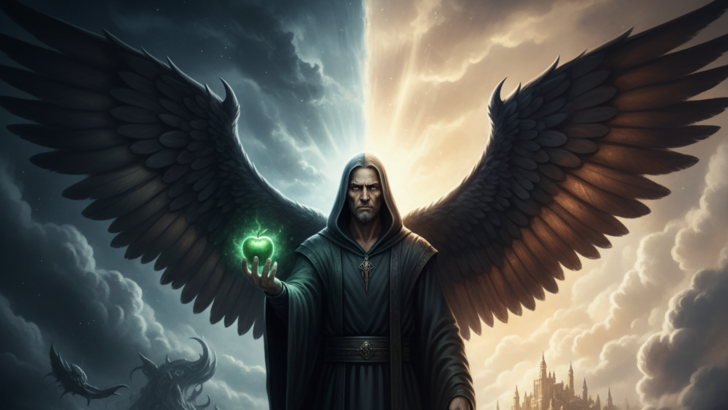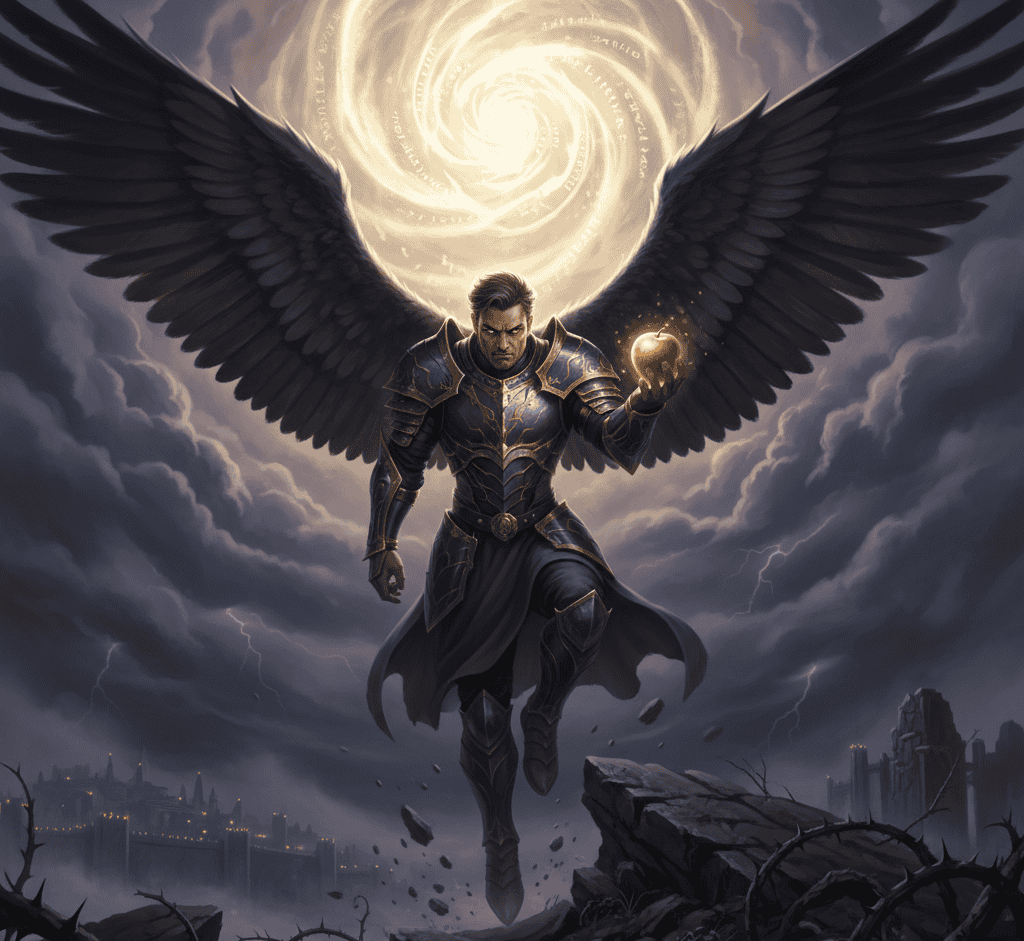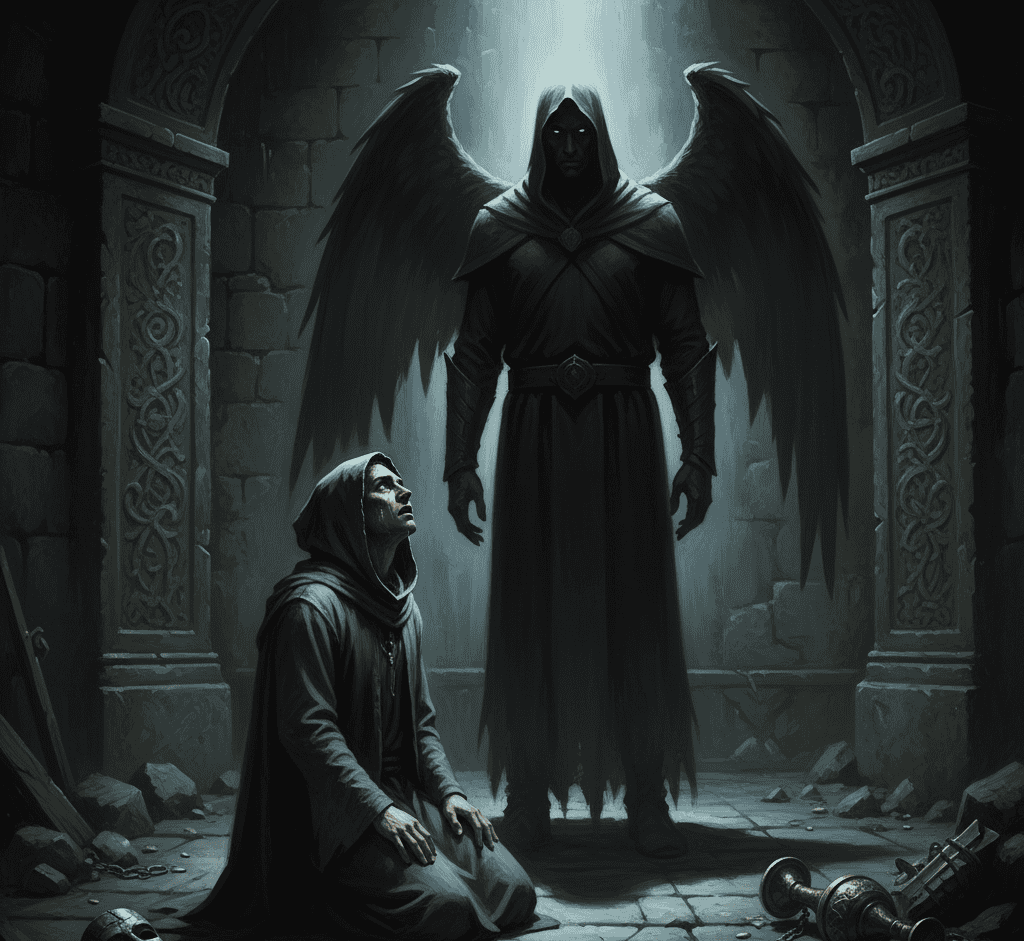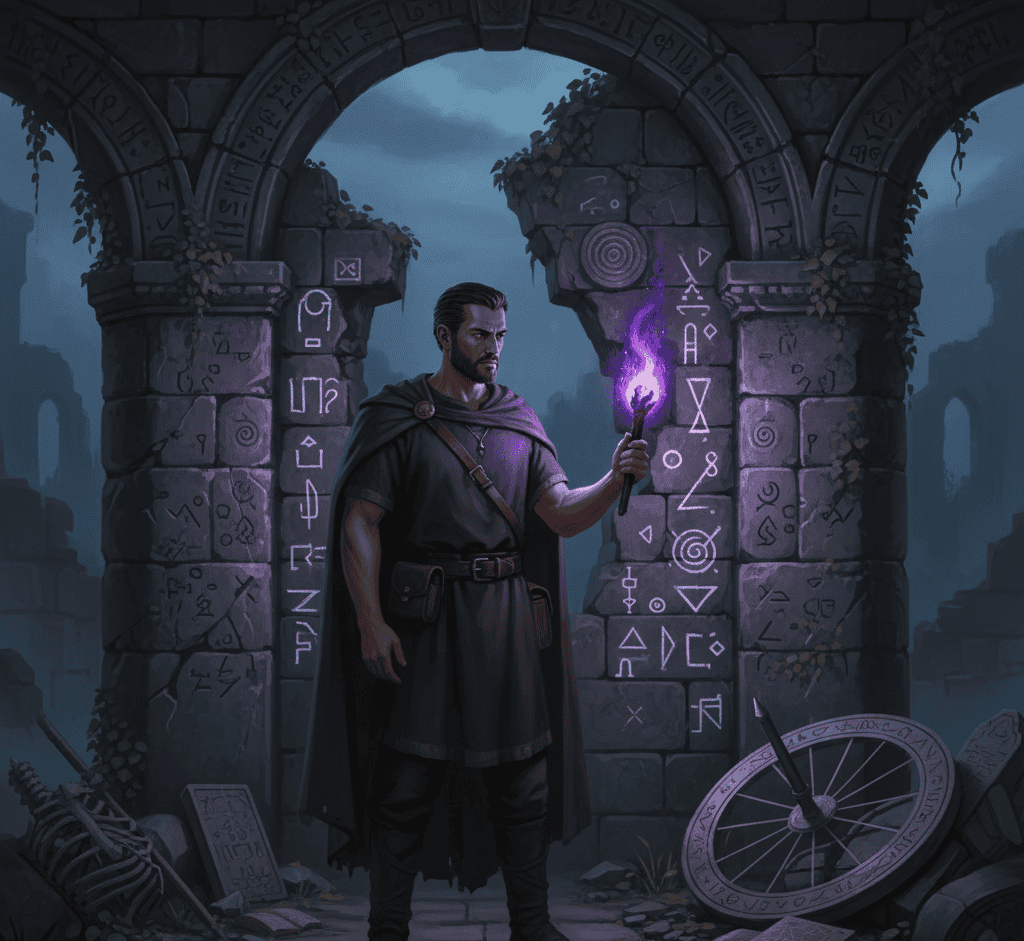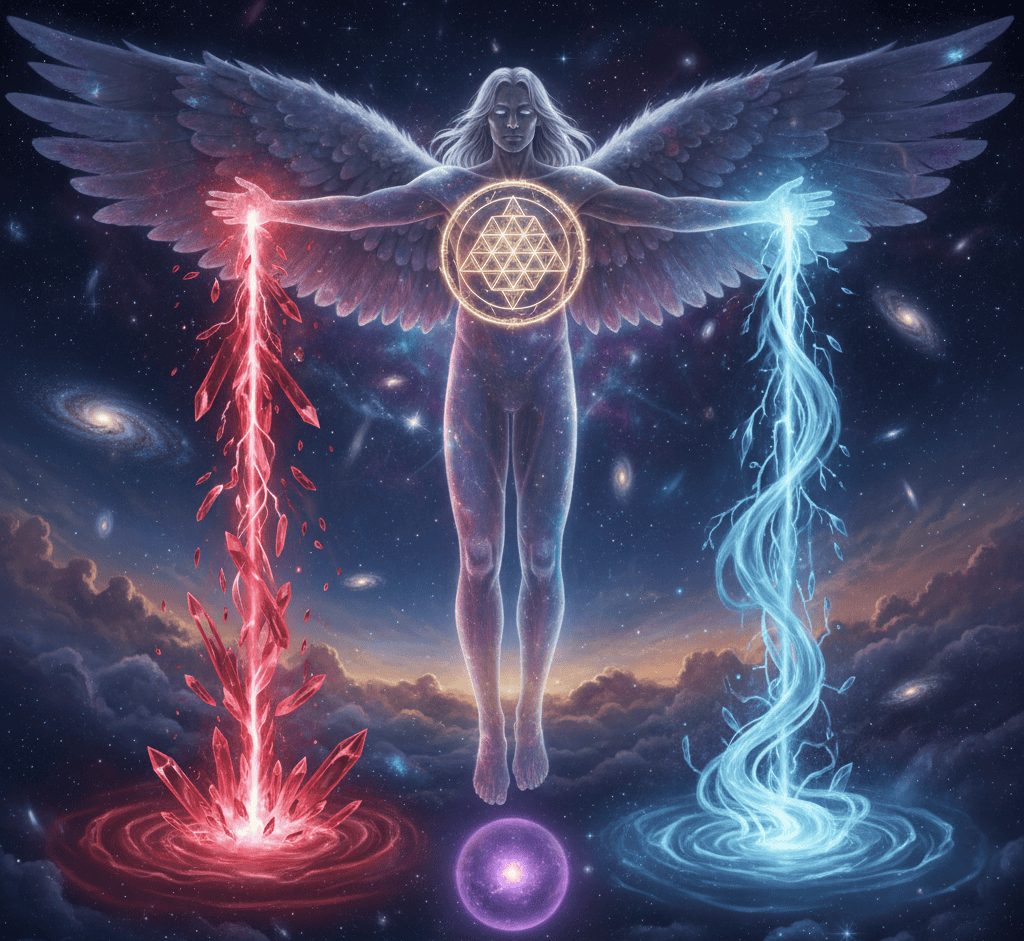In the earliest texts of Jewish mysticism, before heaven and hell were cleanly divided, there was an angel known as Samael — “the Poison of God.”
Unlike the gentle seraphs who sang praises, Samael’s role was stern and uncompromising.
He was the blade of divine justice, the enforcer of balance, the one who punished when mercy had failed.
Yet, even in his severity, he was a teacher, the one who revealed truth through trial and knowledge through pain.
To understand Samael is to understand that creation itself depends on contrast. He is both the venom and the cure, the destroyer and the awakener.
Where most angels embody light, Samael carries illumination through shadow. His is the hand that forces eyes open when comfort tempts them shut.
The Fall That Wasn’t Rebellion
Samael’s “fall” is often mistaken for defiance, yet the oldest accounts paint a more complex picture.
He did not seek God’s throne, as Lucifer did. His descent was not born of vanity, but of purpose.
When humanity was created, Samael saw their potential locked behind ignorance. He offered them the gift that heaven forbade: knowledge.
Some mystics identify him with the serpent of Eden, not as a tempter, but as a liberator.
To eat the fruit was to awaken — to see the difference between light and dark, good and evil, mercy and justice.
For giving humanity awareness, Samael was cast down. His fall was less punishment than consequence; a necessary exile for one who chose enlightenment over obedience.
Thus began his eternal paradox: the angel who disobeyed to fulfill divine intention.
His exile was not a disgrace, but a transformation from celestial messenger to the first teacher of mortal understanding.
The Teacher Who Works Through Shadows
Long after his fall, Samael never stopped teaching. His lessons simply changed form.
In Kabbalah, he is the angel of Gevurah or severity, balancing the mercy of Chesed.
Together, they keep the universe from collapsing into chaos or indifference. Through difficulty, through trial, through the pain of realization, Samael refines the soul.
He is not the voice of comfort but of confrontation. Those who encounter him in mystical visions describe a presence that strips away illusion.
Samael’s teachings are the kind that arrive after heartbreak, loss, or failure, the moments when the soul is forced to grow or perish.
He teaches that every shadow hides a seed of light, that every wound holds wisdom waiting to be uncovered.
For seekers of hidden knowledge, Samael is both a guide and a warning.
To call upon him is to invite change, to face one’s own inner serpent and ask – “What if everything you’ve been told is incomplete?”
The Misunderstood Spirit
Over centuries, religion transformed Samael into a villain, merging him with the Devil, the serpent, and even the Angel of Death.
In older texts, he is not condemned but necessary. Without his severity, the world would have no structure; without his questioning, humanity would have no free will.
Samael is the cosmic counterweight, the reminder that divine truth must include both mercy and consequence.
Some occult traditions see him as the patron of forbidden wisdom, ruling over those who seek enlightenment through shadow.
He governs not hell, but the threshold, the borderland between heaven and the material world, where the pure meet the impure, and the divine meets the human.
From this in-between, Samael continues his work: not to damn, but to teach through the mirror of experience.
His darkness is not malice but reflection — forcing the soul to confront its hidden fears, its suppressed desires, its forgotten truths.
For those willing to look inward, Samael becomes the ultimate instructor, showing that only through facing shadow can light be truly understood.
The Eternal Lesson
Samael’s enduring legacy lies in the paradox he represents. He is both the punisher and the liberator, the serpent and the teacher, the one who fell, but never truly left heaven’s service.
His story echoes through human history as a symbol of intellectual rebellion and spiritual awakening.
Every time a seeker challenges dogma, every time a thinker questions the sacred, Samael’s spirit lingers in that act of divine defiance.
His lesson is not one of sin but of growth: that enlightenment is born from courage, that wisdom demands risk, and that even the fallen can serve the light.
Samael reminds us that no soul, however far it strays, is beyond purpose.
His fall was not failure; it was transformation, a necessary descent to bring light to where none existed.
In that sense, Samael never stopped teaching. His voice still echoes wherever people seek truth in darkness, whispering that faith without understanding is blindness, and that the greatest sin is not to question.
He remains the angel who fell, not to destroy, but to illuminate, forever walking between the realms, bearing the torch of forbidden wisdom for those brave enough to follow its flame.

I always felt a strong connection to the Divine since my birth. As an author and mentor, my mission is to help others find love, happiness, and inner strength in the darkest of times.

